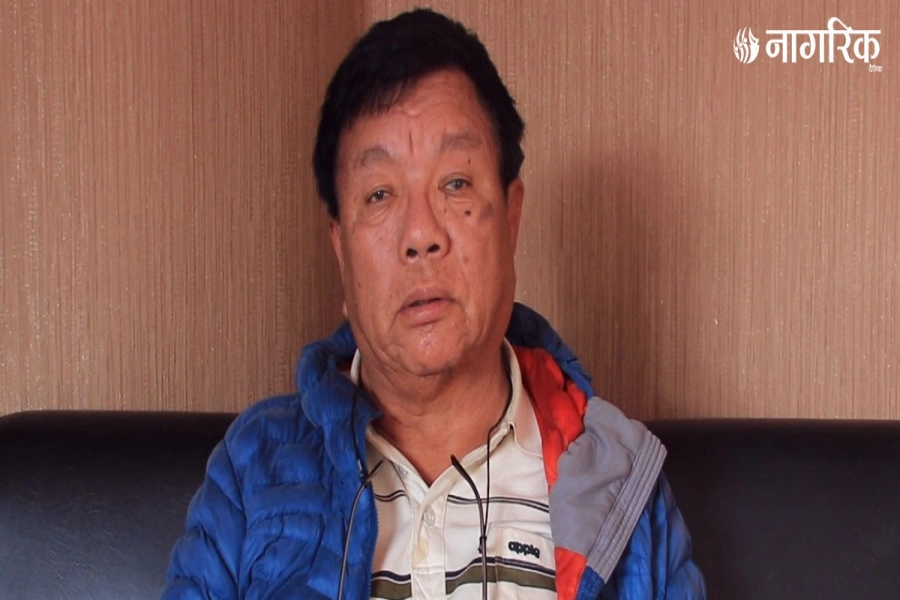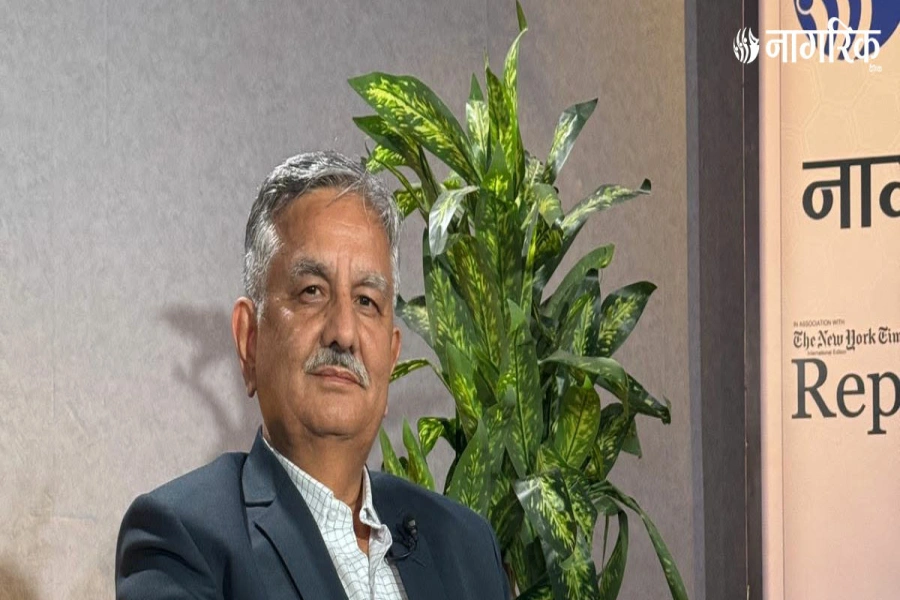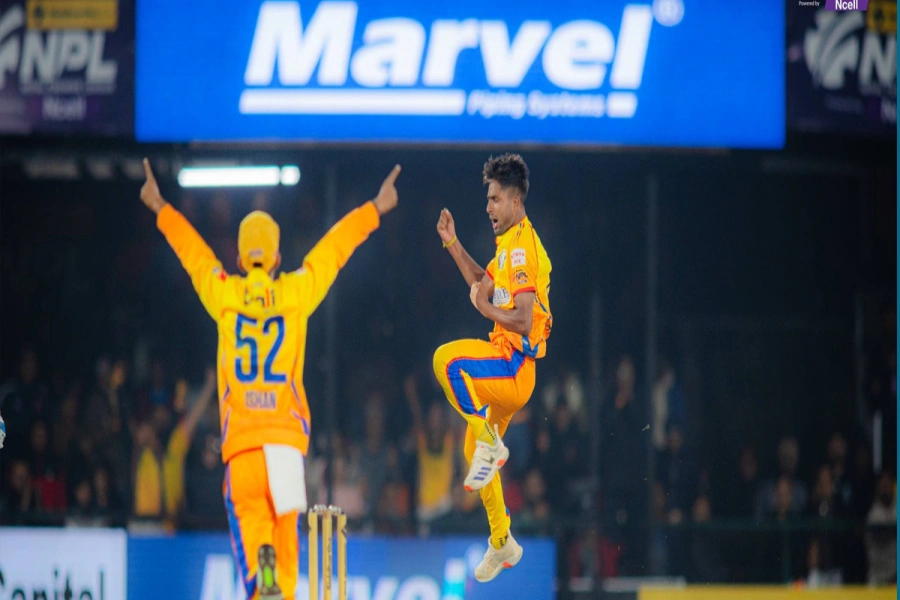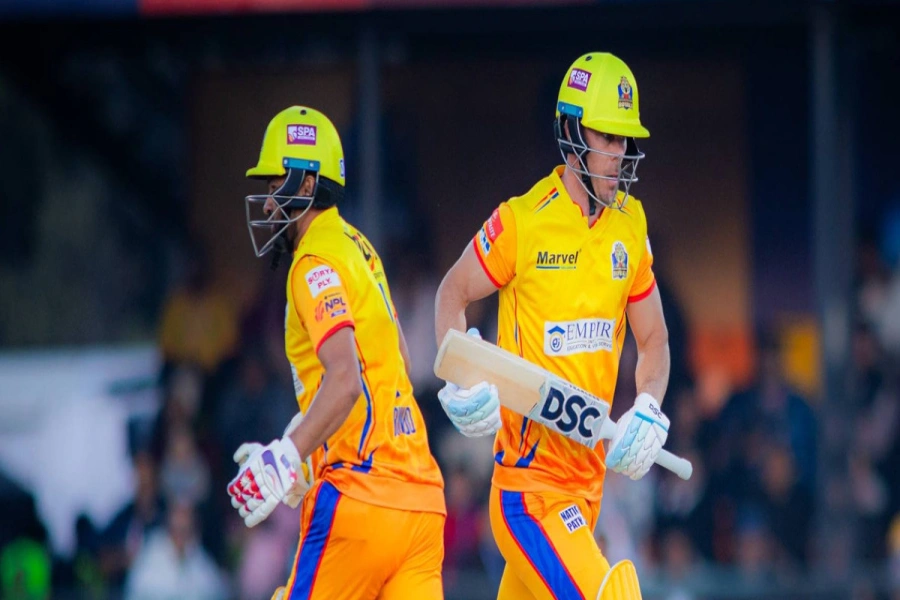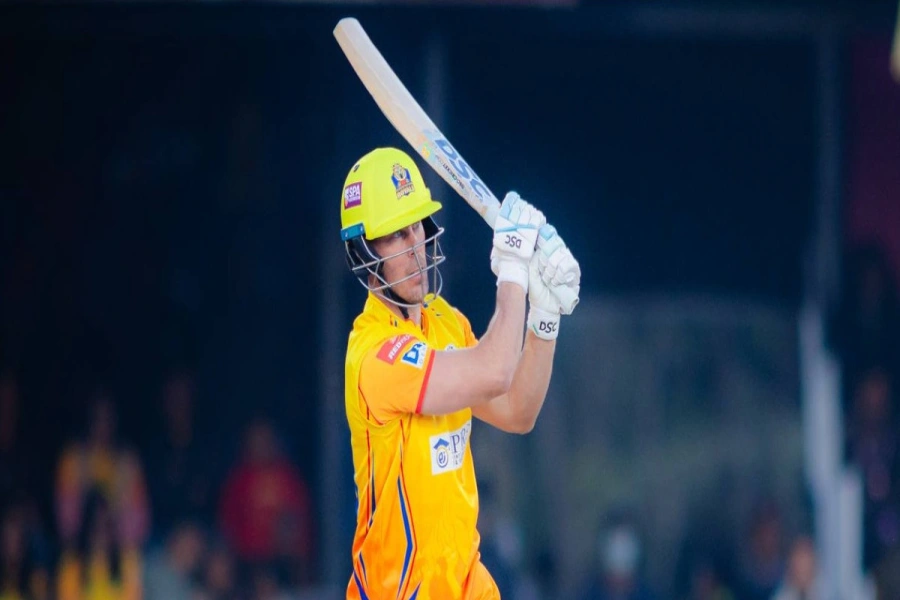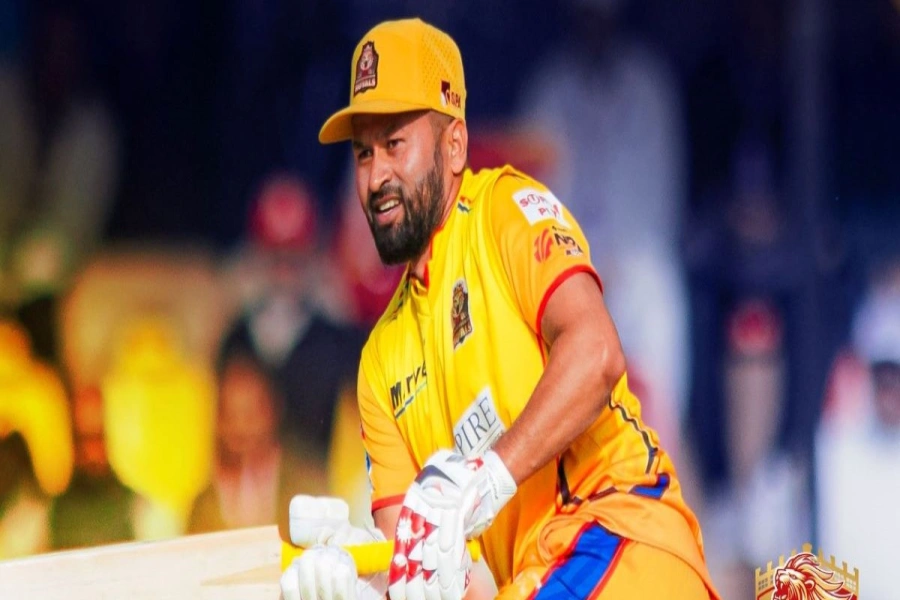Minister Tripathi had indicated the middlemen as ‘powerful ghosts’
KATHMANDU, May 6: Minister for Health and Population Hridayesh Tripathi had earlier hinted at ‘obstructionists’ for delays in delivery of Covishield vaccines from India. In an interview with Nagarik in the last week of February, he had said that the commission agents’ greed was responsible for the mess, and said, “Some powerful ghosts have awakened.”
The traders and commission agents who obstructed vaccine purchase turned out to be the ones working closely with Prime Minister KP Sharma Oli. The supply of Oxford AstraZeneca vaccine produced by the Serum Institute of India (SII), which Nepal was preparing to purchase and had received one million doses as a gift from the Indian government, was halted after the agents demanded a ten percent as commission.
Minister Tripathi at the time shied away from naming the individuals. It has been revealed that Vijay Dugad and Ritu Singh Vaidya, partners at Hukam Distribution & Logistics Private Limited, a local agent of SII, have been demanding a ten percent commission on the vaccines purchased by the government.
The government had already agreed to provide ten percent as commission to the private sector in vaccine purchases. As the government was not ready to pay a commission on the vaccine purchased directly from the factory, the agents then moved to actively block the purchase.
At a time when the death toll from the second wave of COVID pandemic is spiraling out of control, officials and experts say that if Nepal had moved ahead with the vaccine procurement process as expected, we would not have seen this tragedy unfold today. Of the two million doses of vaccines that Nepal has purchased from SII, only one million was received. The commission agents were able to influence within the SII to not supply the vaccine to Nepal.
SC makes publication of public procurement tender notices in ne...

Dugad, mostly lives in Mumbai, India. Another accomplice Ritu Singh Vaidya and her husband Suraj Vaidya are close to CPN-UML. Suraj, who has close ties with Prime Minister Oli, was named the coordinator for the Visit Nepal Year 2020 campaign.
A health ministry source had earlier hinted that they had influenced the leadership of the SII in purposefully delaying vaccine shipment to Nepal. The story is eerily similar to the infamous Omni scandal in the previous phase of the COVID pandemic.
The government of India has banned the export of Serum vaccines after the deadly second wave in India. But even before the outbreak, the remaining one million doses of vaccines were not received by Nepal due to the commission agents’ greed, said the Health Minister Tripathi.
The campaign, which started with the one million doses of AstraZeneca vaccine provided by India, was followed by another one million doses of purchased vaccine. But Nepal's vaccination campaign has come to a halt due to delays in receiving one million doses of the vaccine the SII.
Minister Tripathi, in the interview, had said, “Nepal got the vaccine at a concessional rate in the initial procurement as the Indian government supported the deal. But the ghosts have awakened and they want a ten percent commission in this deal. Now, there are other agents who also want a commission in the proposed purchase of five million doses.”
There was even a verbal agreement with the SII to buy an additional five million doses. The vaccine would have arrived if these agents had not intervened at the time. The process was stalled after a representative of Hukam asked the Ministry of Health to include a ten percent commission in the procurement process.
Officials at the ministry stated that the SII showed interest in going forward with the deal via agents.
“Our ministry has a clear view that we will not pay a commission for the direct purchases. The commission agents and middlemen are powerful, and have access even outside the country,” Minister Tripathi said.
Even after two-and-a-half months of the interview with Minister Tripathi, the vaccine procurement has moved nowhere.
Meanwhile, Vijay Dugad claims that his company did not obstruct the process, and the government was just blaming him. “We wanted to work in partnership at a time of crisis but the government did not want that,” he said.
He informed that when Bhanubhakta Dhakal was health minister, he had proposed procuring 20 million doses of vaccines from the SII. “Vaccines did not arrive on time because of the government’s indecisiveness. We had agreed to bring the vaccines as per the government's condition.”
The government had projected the need for 43 million doses of vaccines to prevent the pandemic, said Dugad, adding: “Where is the government’s plan to purchase the vaccine? Why has the government dragged the issue to this?”
The government has paved a way to let the private sector bring in vaccines. The private sector can make no more than ten percent profit while procuring and distributing the vaccines. The government purchased one million doses of Covishield vaccine via G2G process.
Dugad, Serum’s local agent, clarified that they did not obstruct the procurement process. “We had informed the ministry that we did not need commission in the purchase of a million doses. We simply have helped the government,” he added.
Different studies have shown that those vaccinated are not severely affected by the virus. According to Indian Council of Medical Research, of the 1.5 million vaccinated with both doses of AstraZeneca, 5,000 were reinfected. It is 0.03% of the vaccinated population.
A high official at the ministry said, “If the vaccination drive had taken momentum as per the plan with expected vaccines from India, our human casualty would not be this at this scale.”
Officials from the ministry informed Republica that the discussion is underway with Russia, the United States of America and China to purchase the needed vaccines.




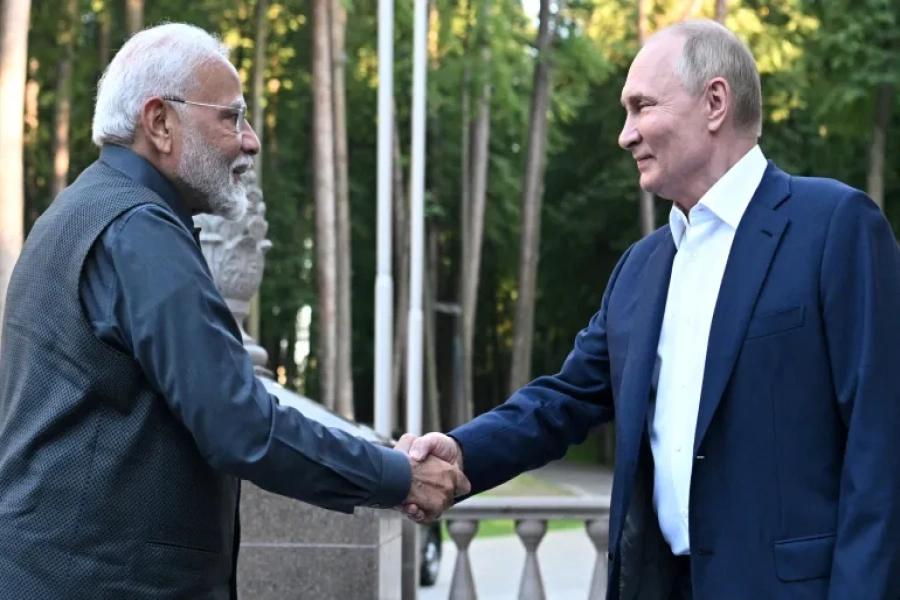
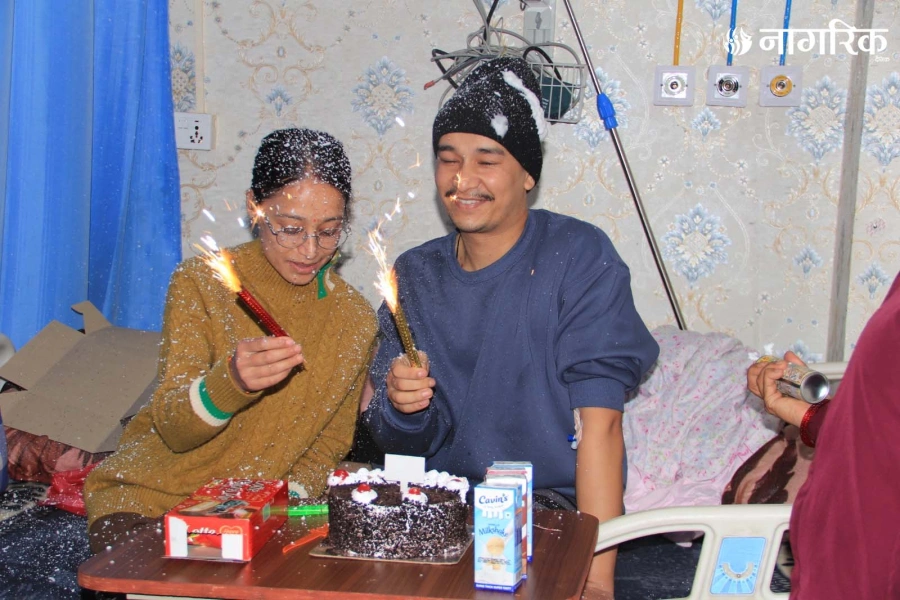












-1200x560-1764836409.webp)
